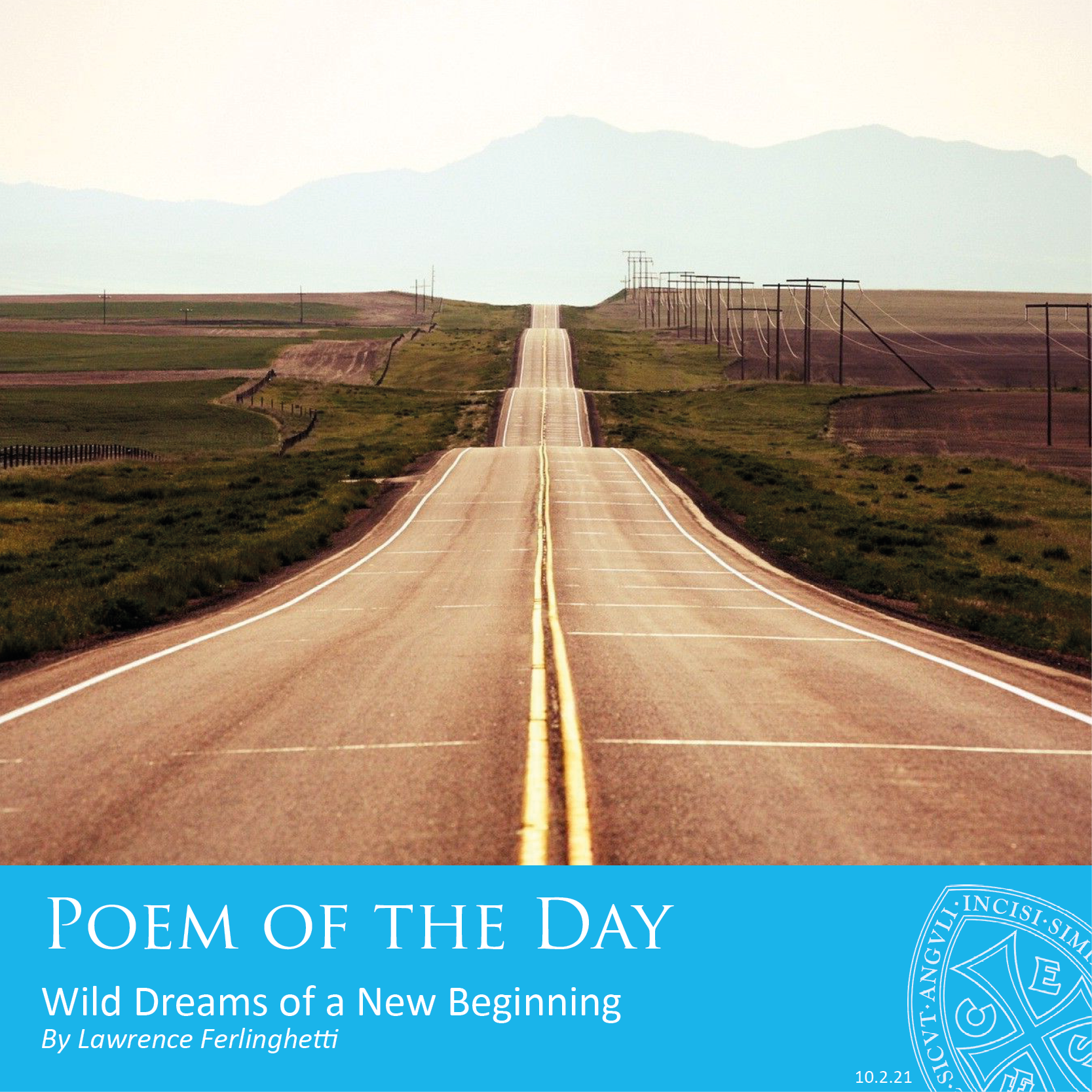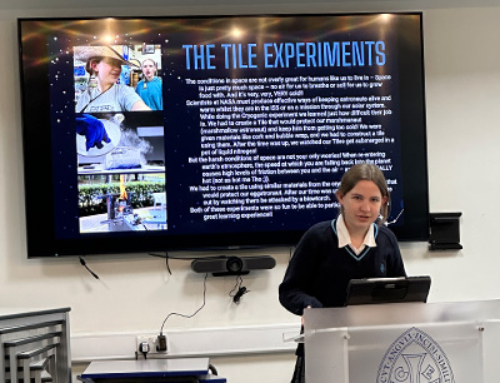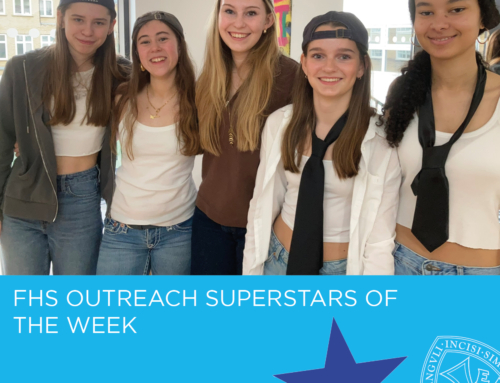Today’s poem is brought to us by the Lower Sixth English prefects, Anastasia, Miranda, and Emily.
Lawrence Ferlinghetti is an American poet, painter, social activist, and the co-founder of City Lights Booksellers & Publishers. He was born New York March 24th, 1919 and he turns 102 this year. Ferlinghetti published many of the Beat poets and is considered by some as a Beat poet himself, notable Beat poets include Jack Kerouac and Allen Ginsberg. Ferlinghetti takes a distinctly populist approach to poetry, emphasising throughout his work that “art should be accessible to all people, not just a handful of highly educated intellectuals.”
Wild Dreams of a New Beginning
There’s a breathless hush on the freeway tonight
Beyond the ledges of concrete
restaurants fall into dreams
with candlelight couples
Lost Alexandria still burns
in a billion lightbulbs
Lives cross lives
idling at stoplights
Beyond the clover leaf turnoffs
‘Souls eat souls in general emptiness’
A piano concerto comes out a kitchen window
A yogi speaks at Ojai
‘It’s all taking place in one mind’
On the lawn among the trees
lovers are listening
for the master to tell them they are one
with the universe
Eyes smell flowers and become them
There’s a deathless hush
on the freeway tonight
as a Pacific tidal wave a mile high
sweeps in
Los Angeles breathes its last gas
and sinks into the sea like the Titanic all lights lit
Nine minutes later Willa Cather’s Nebraska
sinks with it
The sea comes in over Utah
Mormon tabernacles washed away like barnacles
Coyotes are confounded and swim nowhere
An orchestra onstage in Omaha
keeps on playing Handel’s Water Music
Horns fill with water
and bass players float away on their instruments
clutching them like lovers horizontal
Chicago’s loop becomes a rollercoaster
Skyscrapers filled like water glasses
Great Lakes mixed with Buddhist brine
Great books watered down in Evanston
Milwaukee beer topped with sea foam
Beau Fleuve of Buffalo suddenly becomes salt
Manhattan Island swept clean in sixteen seconds
buried masts of Amsterdam arise
as the great wave sweeps on Eastward
to wash away over-age Camembert Europe
mannahatta steaming in sea-vines
the washed land awakes again to wilderness
the only sound a vast thrumming of crickets
a cry of seabirds high over
in empty eternity
as the Hudson retakes its thickets
and Indians reclaim their canoes
This poem portrays how we are capable of creating meaning in the modern, industrialised world.
What we found very interesting is the contrast between the destruction of the human world (with special emphasis on ancient or traditional things) seen in the middle, and the empty, short lined, ending where everything has returned to a ‘natural’ state. There is also a hopeful suggestion that human life can continue again in harmony with nature.
Moreover, the form of the poem is really amazing at portraying the wave that is described as washing away the world. Because of the lack of punctuation and numerous line breaks, the pace of the poem is quick, and overwhelming just like the description of the events. This is similar to the wave in some ways, as it too is overwhelming and consuming.
We thought it also rather interesting how it is only major metropolitan areas – hubs of modern human activity – that are washed away. The indirect criticism of places like Chicago, Los Angeles, and Manhattan through their removal during the poem, brings up the question: have we humans created more evil than good in these places?
Regardless, we were intrigued by this poem’s strong references to ancient human creations like the library of Alexandria, Mormonism, and music.
The poem could be interpreted as a vision of the future devastation of climate change, where sea levels rise, cities are wiped from the maps, and humanity is gone. This interpretation, however, may not have been intended, given people’s limited awareness of climate change in 1976 (when the poem was written).
This poem also has a strong thematic connection with ‘The Great Gatsby’ by F. Scott Fitzgerald. The idea of settlers corrupting the ‘new land’ of America is strong in both the novel and the poem; however, in the novel the unspoiled American wilderness was something of the past, while in the poem it is the future.
Furthermore, we really liked the first line of this poem – it’s unexpected to find peace on a busy road. This road symbolises the business of our day-to-day lives. Yet here we see the possibility to find moments of quiet reflection. It is possible to romanticise our culture, the beauty of which can be easily forgotten: “restaurants fall into dreams”. “In a billion lightbulbs / lives cross lives”, is an expression of how, even though individuals live their separate lives and a lot of the times forget about others, we’re all in this together: every day, someone else, somewhere else in the world, is doing the same as us.
To us, peacefulness, no matter the chaotic circumstances, is the takeaway from this poem. Life in quarantine can snowball and end up being too hard to handle. During these moments we have to take a step back, clear our heads and remember that we’re all in this together ❤️














